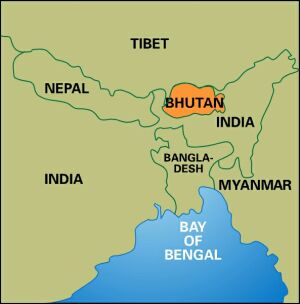China, India and a country ‘in between’
By Kinley Tshering
Professor of international relations and an expert on China-India relations at Westminster University in London, UK, Professor Dr. Dibyesh Anand gave a critical perspective on Bhutan’s relations with its giant neighbors, India and China, at a CBS forum
British and the Duar wars
The 1864 Duar War, after which Bhutan ceded 18 of its most fertile Duar plains to British India, wasn’t just necessarily a reaction to Bhutanese aggression. It was a calculated move.
That’s what Professor Dr Dibyesh Anand, an expert on China-India relations at Westminster University in London, UK, believes.
Speaking on Indo-Bhutan relation vis-à-vis China at an open discussion forum organized by the Center for Bhutan Studies early this week, Dr. Anand said the taking over of the Duars was part of the bigger scheme of British expansion policy and imperialism.
 “As a rich producer of rice, Bhutan could feed a whole garrison of Chinese army in the north,” he said, adding that the annexation of the Duars was in part a calibrated move to dissuade Chinese expansion.
“As a rich producer of rice, Bhutan could feed a whole garrison of Chinese army in the north,” he said, adding that the annexation of the Duars was in part a calibrated move to dissuade Chinese expansion.
And in 100 years, from a rice producer, Bhutan has become a rice importer, he said.
“British India was also aware of the potential of tea cultivation in the Duars and the Duars were strategically crucial to British India vis-à-vis North East and Bangladesh.”
The monetary compensation that the British paid in lieu of Duars plain to Bhutan was useful to control and influence domestic politics, Dr Anand said.
This was evident from the support Bhutan rendered to British India when it invaded Tibet in 1903-04, he said.
“British considered Bhutan, Sikkim and Nepal part of its empire.”